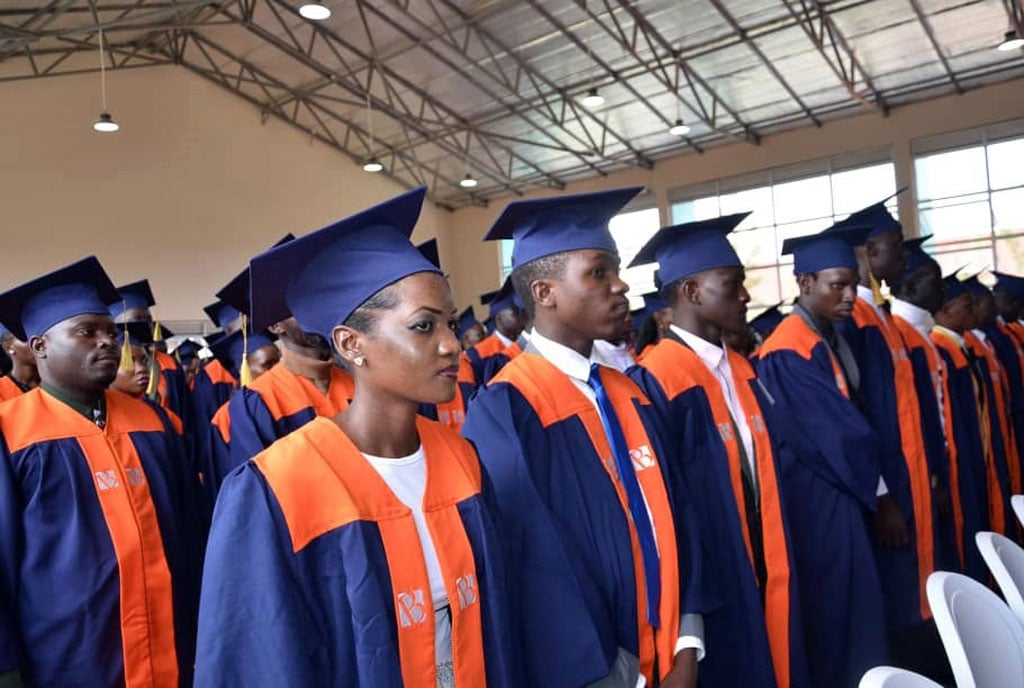Prime
NCHE issues guidelines for university e-learning

An empty lecture room at Makerere University College of Natural Sciences on January 21, 2019. The National Council for Higher Education has released guidelines for e-learning in institutions of higher learning across the country. PHOTO BY ALEX ESAGALA
The National Council for Higher Education (NCHE) has released guidelines for e-learning in institutions of higher learning across the country to commence remote teaching and learning activities during the ongoing Covid-19 lockdown.
In a televised address last week, Education minister Janet Museveni said it is not yet the right time to reopen schools and revealed that her ministry is developing an ICT and e-learning framework, which will guide education institutions on distance learning.
According to the copy of the guidelines for adoption of distance and e-learning (ODEL) system that Daily Monitor has seen, NCHE has set 23 requirements that must be fulfilled by all the institutions before they are cleared to start e-learning.
“The NCHE takes cognizance of the readiness to reopen expressed by the majority institutions and has developed guidelines for aiding these institutions to resume their teaching and learning activities remotely, where the students and lecturers can be able to interact without necessarily coming into contact during the lockdown,” the NCHE executive director, Prof Mary Okwakol, told Daily Monitor in a telephone interview yesterday.
“We are ready to accredit all those institutions that will apply to start e-learning. We, however, expect them to apply for courses that have been approved by the NCHE,” she added.
According to the guidelines, universities have been asked to undertake a survey on students indicating their willingness or inability to participate in the proposed arrangement.
The guidelines indicate that in case of students being unable to access the emergency teaching and learning, the institution should indicate its proposed mitigation measures of redress for time and learning lost, the strategy for covering the learning content missed during the lockdown.
Universities have also been asked to submit evidence of the existence of the Covid-19 Standard Operating Procedures (SOPs) as issued by the Ministry of Health which should clarify the arrangements on the ground in the institution so as to mitigate the safety concerns should a student, staff or NCHE official pay a visit.
Universities have also been asked to submit structure and details of the proposed e-learning model, including the equipment such as flash discs, data provision or the available logistical arrangements of how materials will be delivered to learners.
OTHER GUIDELINES
The institutions will..
1. Avail the list of the accredited academic programmes to be rolled out on the e-learning system, since the guidelines will support the rolling out of only accredited academic courses.
2. Avail a list of qualified staff who are ready to support the rolling out of the academic programmes through the e-learning system.
3. Provide details of the students to be engaged which should include evidence of having traced them and a survey on the students’ readiness for lessons as well as the learning support technologies they have e.g. smart phones, laptops and internet.
4. Provide evidence of approvals by the institutional respective organs like Senate and Council with principles and guidelines of how the system would run, including equity and quality assurance.
5. Avail evidence of the mechanism of access and usage by the students and staff and how universities would address the issue of students who are not able to acquire electronic gadgets, data and network
6. Give assurance of mainstreaming of disability and gender in all Covid-19 response recovery actions
7. Provide a description of the pre-training of both the staff and learners to be offered prior to embarking on the e-learning system.
8. Provide the assessment and evaluation mechanisms of learning, as a means of continuous assessment during the teaching and learning.staff trained to deliver examinations on-line, Security and cheating avoidance.( Face recognition software, final examinations should be done on campus when institutions re-open)
9. Provide evidence of the e-learning capability, including the recording and documentation mechanisms for post viewing.
Lockdown: Varsities shift to e-learning
Universities have shifted to e-learning to ensure continuity of studies following the indefinite closure of education institutions in the country.
The Minister of Education and Sports, Ms Janet Museveni, in her address to the nation last week, said it is not yet the right time to reopen schools.
Ms Museveni said her ministry was developing an ICT framework to guide institutions on distance learning.
The minister added that they had developed e-learning guidelines for universities and tertiary institutions to follow to ensure no student is left out.
Victoria University yesterday said they had completed preparations and will start e-learning this week.
Addressing a press conference at their offices in Kampala yesterday, the Vice Chancellor, Prof Sharma Krishna, said the university had already prepared their lecturers and learners on how to use the various platforms.
He said the university conducted a survey in May and 76 per cent of their learners were ready to embrace the strategy.
“Our lecturers have been equipped to start lessons even without coming to school. We have already applied to the government to allow us to start out lessons this week because most of the guidelines they are telling us to follow are already in place,” Prof Krishna said.
He said they will use WhatsApp and emails to deliver content to students and also apply Google Meet and Zoom to enable face to face lessons.
“With Join Me Zoom, a lecturer can easily supervise all the learners from the screen. He or she can be able to see what students are doing to ensure that no one cheats the exams,” Prof Krishna said.
Presidential adviser Ham Mulira said all universities in the country must fulfill the government guidelines that have been issued by the National Council for Higher Institution (NCHE) before they are allowed to start e-learning.
“All universities must ensure that all their learners have devices to access e-learning before we permit them to start e-learning. This must be done to ensure that no learner is left behind. As government, we shall also do our best to help learners in higher institutions just like we are doing with those in lower education,” Mr Mulira said.
Universities say
Makerere, Kyambogo and Busitema universities said they were also set to roll out the technology as soon as NCHE approves their applications.
The Makerere University deputy Vice Chancellor for Academic Affairs, Prof Umar Kakumba, said the university is more than ready to start e-learning.
Prof Kakumba said before Covid-19, the university had trained 50 e-learning course design experts who are staff.
He revealed that Makerere has also acquired 100 Zoom licences to facilitate face-to-face interaction between lecturers and learners.
“Makerere has been at the forefront of open, distance and e-learning even before Covid-19. We have free internet at the university, computers at all colleges and our area network is very fast. With this, we are ready to roll out e-learning to our students,” he said.
He said they carried out a survey and established that 90 per cent of their students are on WhatsApp, an indication that they have smart phones that can access various content on other platforms.
Kyambogo University vice chancellor Eli Katunguka said the university is currently training staff on how to deliver lessons online.
Prof Katunguka said the staff are also being trained on how to develop and upload content on various platforms.
He, however, noted that majority of students are upcountry and cannot access internet, power or data.
“We are working on finding out how many of our students can access these delivery modes once we start lessons. It is going to be one of a challenge but we shall get there,” Prof Katunguka said.
The Vice Chancellor of Busitema University, Prof Paul Waako, said they are studying the courses that can be taught online.
“The announcement was followed by guidelines from NCHE, those guidelines provide us with a way forward. We now need to look at all the training programmes to see what programmes can be taught online. We shall submit a request to teach some courses online,” he said.
He said practical lessons will be deferred until the university reopens.




